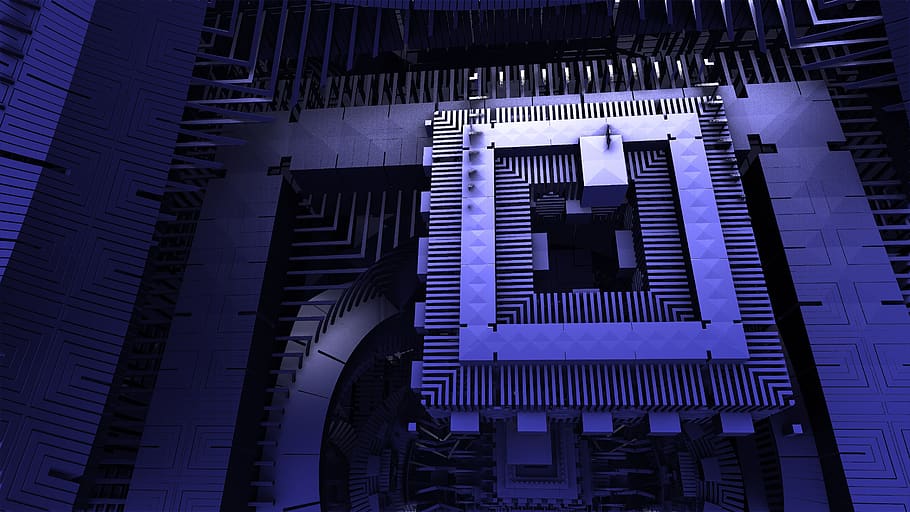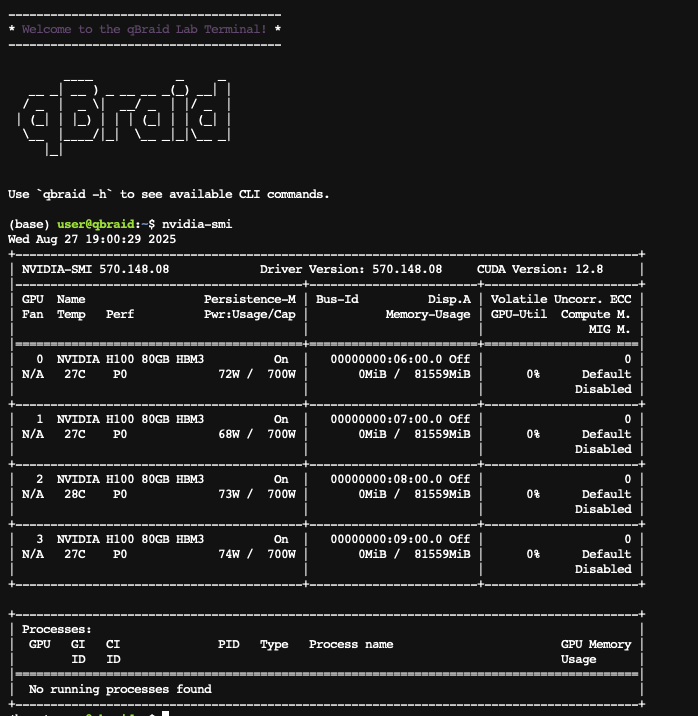Press Releases
10
Min read
Duality Quantum Accelerator Accepts Six Startups into Inaugural Cohort

Contents:

We are excited to announce that Dr. Junyu Liu will be assuming the role of a quantum research scientist at qBraid. Dr. Liu is a world-class scientist in quantum computing and has worked in numerous areas of quantum information science. His work has interdisciplinary applications in optimization, machine learning, data science, big data, quantum computing, blockchains, computer science, and fundamental physics, from formal theoretical predictions, experimental simulations, and observations to commercial realizations.

Dr. Liu received a bachelor’s degree in Physics from the University of Science and Technology of China and his Ph.D. in theoretical physics from Caltech under the supervision of Dr. John Preskil, Clifford Cheung and David Simmons-Duffin. He is a prolific researcher, and has held positions with Walter Burke Institute for Theoretical Physics and the Institute for Quantum Information and Matter. Currently, he also holds positions with the University of Chicago in Prof. Liang Jiang’s Group in the Pritzker School of Molecular Engineering and with the Chicago Quantum Exchange.His notable works include the proposal of a quantum data center, an architecture combining Quantum Random Access Memory (QRAM) and quantum networks. In this work Dr. Liu and his collaborators give a precise definition of QDC, and discuss its possible realizations and extensions. This foundational work is expected to define what future quantum data centers may look like and will have applications in quantum computation, quantum communication, and quantum sensing. His work on Quantum Neural Tangent Kernels has greatly contributed to the field of Quantum Machine Learning. Predicting how well a quantum machine learning model will perform for a given learning or optimization tasks is unclear. However, with QNTK, Dr. Liu presented dynamical equations that allow scientists to estimate how well a QML model will perform.
At qBraid, Dr. Liu will work on quantum optimization, machine learning and other quantum chemistry applications. In collaboration with scientists from MIT, he is currently leading project on making smarter power grids using quantum computers. Dr. Liu and his colleagues exploring the use of quantum algorithms for state-of-the-art smart grid problems. They have been running simulations for the project on various quantum computers through qBraid and their early explorations shows a potential exponential quantum speedup using HHL algorithms for sparse matrix inversions in the power flow algorithms. The implementation of HHL algorithms in the near-term is limited by the quantum noise, the difficulty in realizing quantum random access memories (QRAM), and the depth of the required quantum circuits. The team has developed the software on qBraid for resources estimation that calculates the hardware and software requirements for a given instance of the problem in the fault-tolerant quantum computing regime. They are also exploring the use of near-term variational quantum algorithms for this problem. We plan to make their research available to our customers on qBraid soon.
To learn more about the software Dr. Liu and our other research scientists work on at qBraid, signup on qBraid.com or reach out to us at contact@qbraid.com

Press Releases
10
Min read
Duality Quantum Accelerator Accepts Six Startups into Inaugural Cohort

Press Releases
1
Min read
Take the QuBes (Quantum Beginners) course to learn quantum computing.

Press Releases
5
Min read
qBraid aims to increase accessibility to, and interoperability amongst, quantum computing resources.

Collaborations
3 minutes
Min read
qBraid has been selected by IBM to host their annual Qiskit Global Summer School for the second year in a row.

Collaborations
5
Min read
As an early adopter of the NVIDIA GH200 Grace Hopper Superchip systems, qBraid provides unparalleled access to today’s most advanced computing technologies.

Collaborations
1
Min read
Explore the advantages of cloud-based quantum computing and how it is revolutionizing research and development across various industries

Collaborations
1
Min read
Discover how quantum computing is revolutionizing enterprises, from enhancing cybersecurity with quantum encryption to optimizing complex logistics and supply chain operations.

Collaborations
5
Min read
qBraid’s quantum computing platform adds access to 256 qubit neutral atom quantum computer, Aquila by QuEra.

Collaborations
5
Min read
qBraid and Quantum Algorithms Institute partner to accelerate the pace of quantum computing in British Columbia and beyond.

Collaborations
4
Min read
The qBraid platform will allow users to play with Pulser in a matter of a few minutes.

Hackathons
5
Min read
As part of QHack, qBraid is providing the best quantum developer notebook environment experience for challengers.

Hackathons
10
Min read
From October 21st to November 5th of 2022, qBraid hosted HAQS, one of the most popular quantum computing events of the year, where participants from around the world worked on solving a total of five quantum computing challenges during the two weeks of the event.

Hackathons
5
Min read
At this year's QCHack, participants attended a week filled with amazing talks, 1:1 sessions with academic and industry mentors, and a 24 hour hackathon hosted by Stanford, Yale and Berkeley.
-min.jpeg)
Hackathons
4
Min read
The potential of the field of quantum computing is so huge that everyone in the field cannot wait for all the promises that the field holds to become a reality.

Research
5
Min read
IEEE has awarded qBraid and its collaborators 1st place for the Best Paper Award in the Quantum Algorithm Track.

Research
1
Min read
qBraid's team used hybrid classical-quantum algorithms to determine the best flight path

Research
1
Min read
Learn how classical sampling methods, such as Markov Chain Monte Carlo, can estimate truncation errors in simulating bosons on quantum computers, aiding resource assessment and result validation for quantum simulations, including applications in two-dimensional lattice scalar field theory.

Press Releases
2
Min read
qBraid wins NSF POSE grant to build open source ecosystem

Press Releases
10
Min read
qBraid and NVIDIA CUDA-Q are removing the two biggest blockers to AI4Quantum research

Press Releases
8
Min read
Our first cohort of the qBraid Alliance, a partnership with student organizations at leading universities around the country.

Press Releases
5
Min read
Coming from IBM Quantum Lab? Learn how to start using qBraid Lab

Press Releases
10
Min read
The Bloch develops quantum technology solutions for society’s most pressing problems by accelerating industry adoption to drive research commercialization, catapulting US leadership in quantum information science and technology.

Press Releases
5
Min read
Our newest podcast series

Press Releases
5
Min read
qBraid will lead a team of researchers from MIT, UChicago, Argonne National Laboratory, and QuEra to develop quantum computing solutions for studying the interaction of metals and intrinsically disordered proteins.

Press Releases
Min read
OSU uses qBraid for accessing Intel Quantum SDK

Press Releases
5
Min read
qBraid provides agnostic connections to quantum computers and simulators thanks to Amazon Braket

Press Releases
10
Min read
Duality Quantum Accelerator Accepts Six Startups into Inaugural Cohort

Press Releases
1
Min read
Take the QuBes (Quantum Beginners) course to learn quantum computing.

Press Releases
5
Min read
qBraid aims to increase accessibility to, and interoperability amongst, quantum computing resources.

Product
3 minutes
Min read
Supercharge your quantum workflows with GPUs on qBraid
.png)
Product
5
Min read
We are pleased to have presented qBraid’s Platform-Agnostic Open-Source Tools at the Quantum Computing Devroom in FOSDEM 2025.

Product
5
Min read
Accelerating hybrid workflows using Pennylane's embedded simulators with NVIDIA GPUs on qBraid Lab.

Product
5
Min read
Here are 3 ways to install python packages on qBraid

Product
2
Min read
How to install Cirq v1.2.0 environment on qBraid Lab

Product
1
Min read
Let qBraid help you take your first step into the quantum world!

Product
1
Min read
Intel® Quantum SDK is generally available on qBraid Lab for Free with no installation necessary

Product
1
Min read
Dive into the intricate interplay of the Bernoulli line and the Bloch sphere, revealing profound geometric insights into quantum state dynamics.